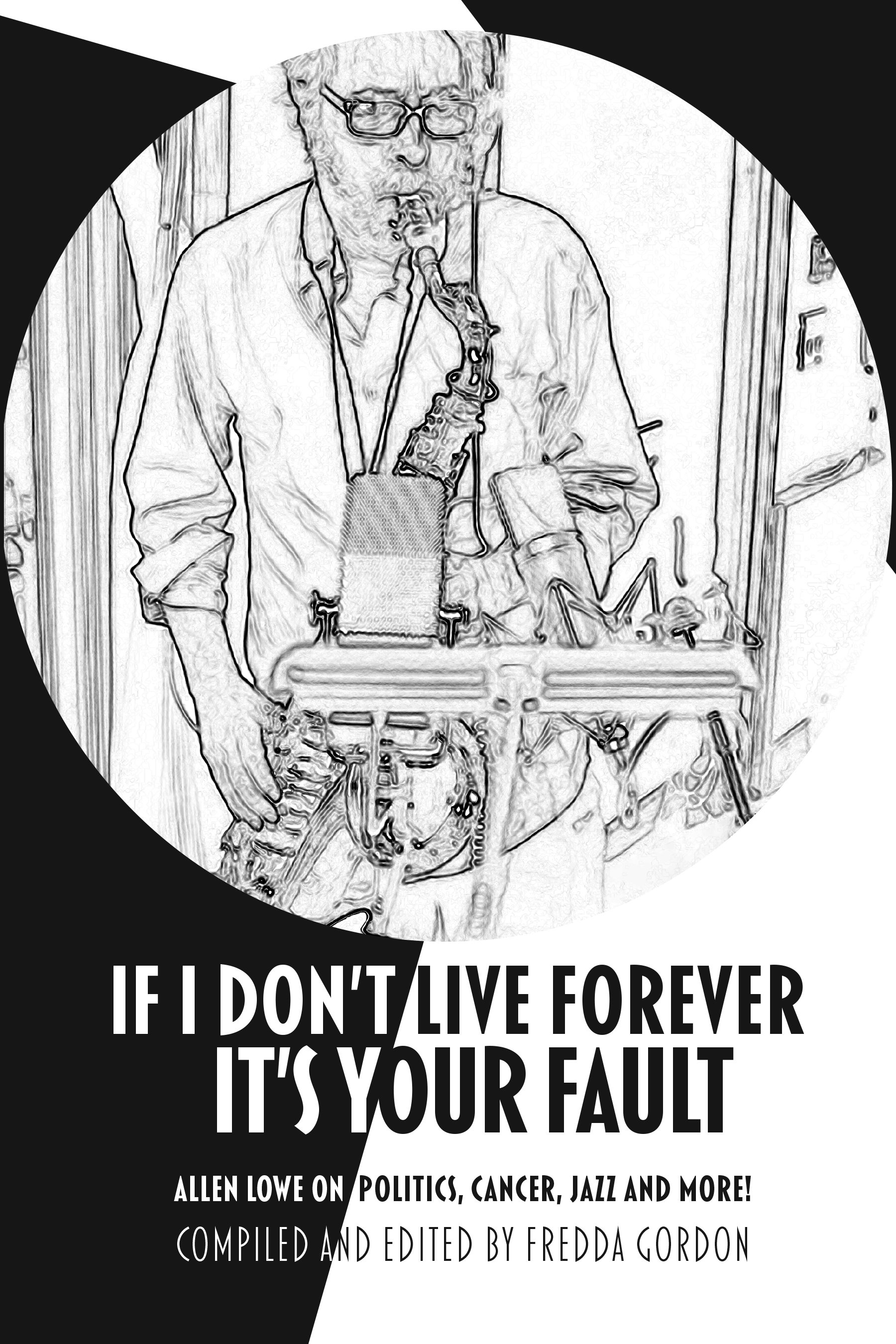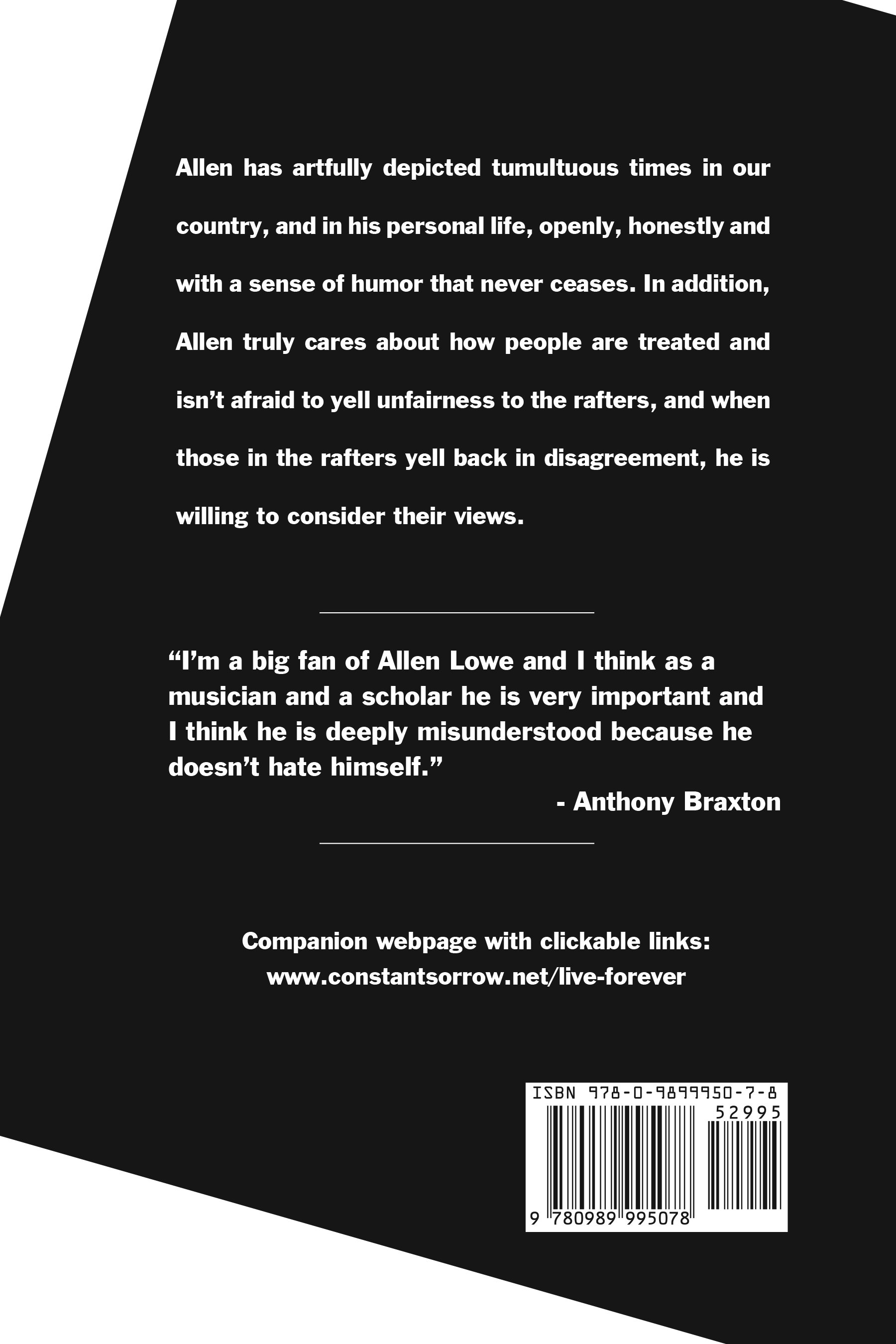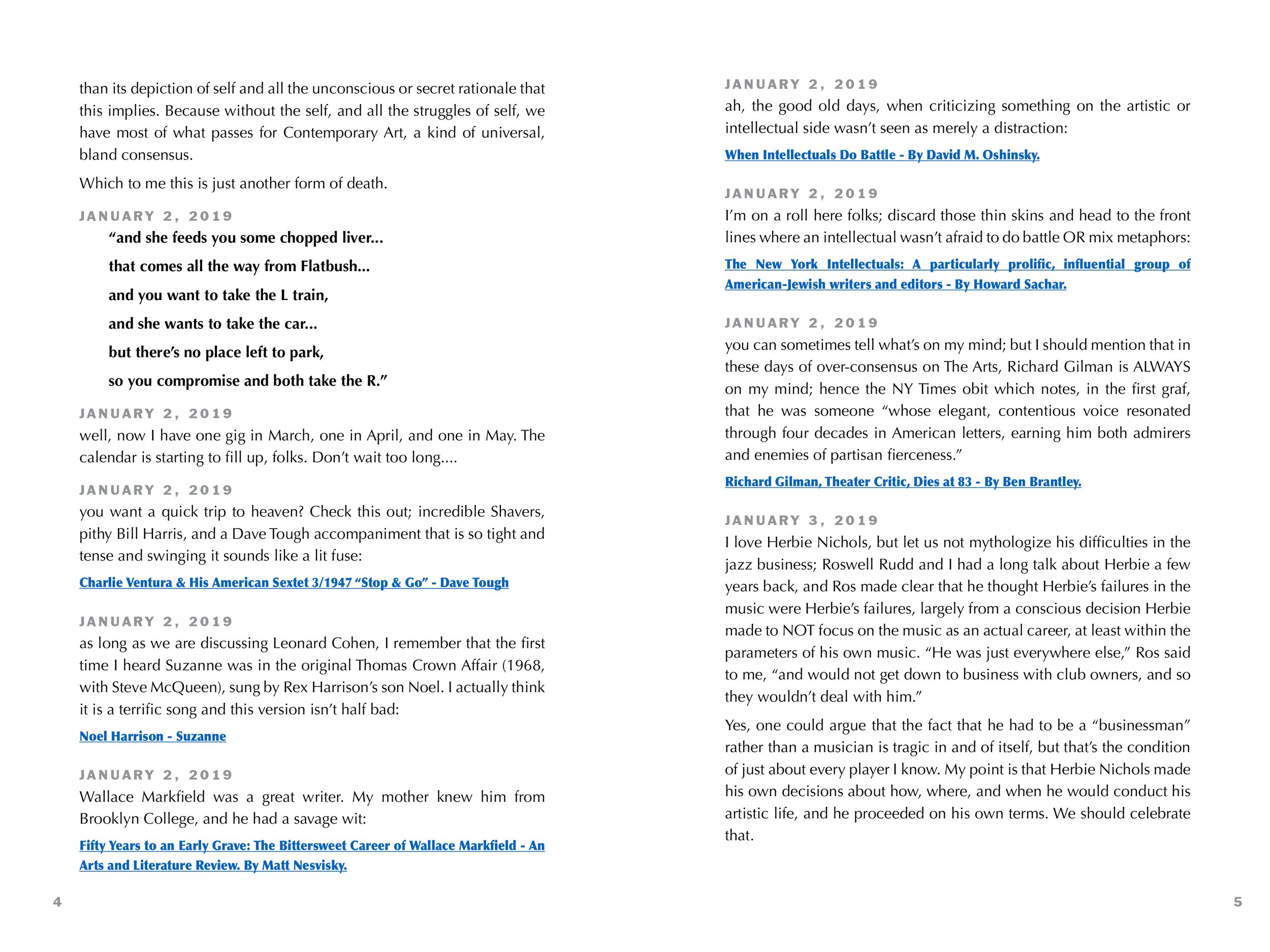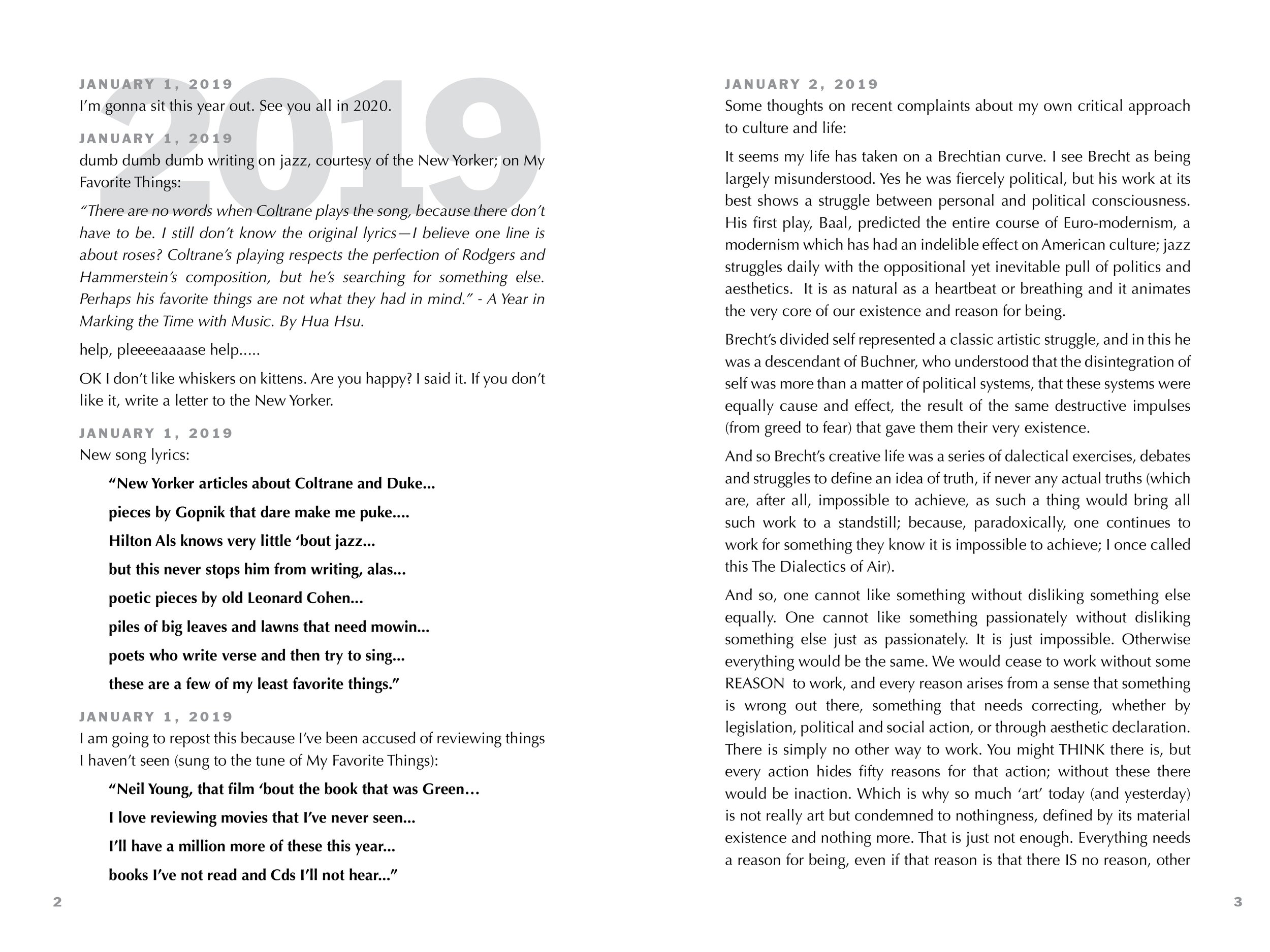Letter To Esperanza: Or: The Goyim Will Not Replace Me - Looking for Tenure in all the Wrong Places
Writings on life, music, race, and culture
Letter to Esperanza is a collection of Allen Lowe’s critical writings over the last ten years, on race, jazz, the blues, rock and roll, cultural equity, cultural appropriation, Maine, anti-Semitism, and white and black country music. One critic called his last book project, Turn Me Loose White Man,” which was about 20th century American vernacular music, “unprecedented” in scope; Letter to Esperanza is an extension of his writings during a time when he moved back to his former home in Connecticut, developed cancer, and fought his way back into the mainstream after a long and difficult exile in Maine.
“Allen is one of the most important music historians alive, an exceptional thinker who sees the entirety of American musical history with unmatched clarity. He's unbowed as an intellectual, driven by neither vogues or ideology. His work taken as a whole is a monumental achievement. There's no one better alive.” – David Hajdu, former music critic for the New Republic
If I Don’t Live Forever It’s Your Fault
Compiled + Edited By Fredda Gordon
While working on this book I often wondered what the point was. Why spend time creating a book with these easily accessible, public posts that I don’t necessarily agree with? In time the answer became apparent.
Initially what drew me in was the humor. Allen Lowe can be very funny, and I wanted to share that. However, the more I worked on it, the more I realized that Allen has artfully depicted tumultuous times in our country, and in his personal life, openly, honestly and with a sense of humor that never ceases. In addition, Allen truly cares about how people are treated and isn’t afraid to yell unfairness to the rafters, and when those in the rafters yell back in disagreement, he is willing to consider their views.
This book begins in 2019 and ends in 2021, spanning COVID lockdown, an important election year, and the appearance of cancer in Lowe’s life. Because of the social media algorithms, not every post is always visible so some may be missing. Also, I cut much of the music writing since that can be found in Lowe’s forthcoming book. In addition, some of Lowe’s longer posts were left out for brevity. Any entries that used other artist’s work were also omitted. All photos are courtesy of Allen Lowe and this book has been published with his permission.
Companion webpage with clickable links:
www.constantsorrow.net/live-forever
“Turn Me Loose White Man”
Or: Appropriating Culture: How to Listen to American Music 1900-1960
Allen Lowe’s latest project, currently shipping, is a two volume set of books and a 30-CD set. The book and CDs cover all genres of the American musical vernacular: minstrelsy, blues, ragtime, hillbilly, country, pop music, jazz, slave repertoire, the blues, rhythm and blues, soul, rock and roll, folk and the folk revival. In the book(s) Allen Lowe analyzes all 800 performances included on the compact discs, explains the what and why, the musical and historical context, and the performer and performance.
The book is being published in 2 volumes. Volume 1 was released in August, 2020. Release Date For Volume 2 of the book is February 15, 2021.
“In his most ambitious book to date, Allen Lowe proves Ralph Ellison’s claim that the whole of our nation’s culture—particularly its music—was built on and blended with what enslaved Africans and their descendants created on these shores. And he pulls no punches and leaves no stone unturned. In nuanced, entertaining, and often audacious prose, Lowe deploys his encyclopedic knowledge to unearth an elusive history of race and American music, unbounded by genre, geography or time. Readers be warned: fasten your seatbelts, adjust your hearing, and prepare to forget everything you know.”
“Allen is one of the most important music historians alive, an exceptional thinker who sees the entirety of American musical history with unmatched clarity. He’s unbowed as an intellectual, driven by neither vogues or ideology. His work taken as a whole is a monumental achievement. There’s no one better alive.”
God Didn't Like It: Electric Hillbillies, Singing Preachers, and the Beginning of Rock and Roll, 1950-1970
An examination of the early days of rock and roll, it’s pre-history and development thought theperiod of the 1960s; with a close look at the early development of country music. Unlike most rock writers Allen Lowe settles on a picture of the music as essentially a white expression, a “white meditation on black forms.’
American Pop - From Minstrel to Mojo On Record 1893-1956
An early and pioneering look at the big picture of American popular music from the period of early pop and jazz to Elvis. Unorthodox in its characterization both minstrelsy and the interaction of white and black musicians, it deals with a plethora of styles from gospel to blues to rock and roll, jazz, white and black pop, and country/hillbilly music.
“What makes this nine-CD set essential is its broad context. By placing Jazz together with the other genres of music alongside which it evolved, the music’s character is thrown more sharply into focus than it is in collections that segregate it from its larger environment. Virtually every nook and cranny of American vernacular music is represented here, from hillbilly to minstrel to military bands to rhythm and blues. Equally impressive is the quality of the transfers from the original recordings and the accompanying text, both done by the set’s producer, Allen Lowe. This is a must-have for any serious student who wants to understand Jazz’s true significance.
”
That Devlin' Tune: A Jazz History 1900-1950
A comprehensive history of jazz from 1900-1950 that moves away from the clichés of most jazz works, looks at both the famous and the obscure, and presents the most detailed look available on the pre-history of jazz as well as its relationship to both country music and the blues. It also has perceptive discussions of minstrelsy and the post-Sudhalter issue of white and black influences on the development of jazz and improvised music. Click here to read an excerpt from That Devlin' Tune.
“Anyone serious about understanding the history of American music has no choice but to engage Allen Lowe’s “That Devilin’ Tune: A Jazz History, 1900-1950.” I use the word “engage” quite deliberately, for Lowe has gifted us with a text and a body of music whose breadth, depth, scope, and sophistication is unsurpassed. His narrative takes us on a journey that even jazz aficionados will find surprising, daring and original, and his experience as a leading performer/composer of creative music gives his discussions of music an astounding level of clarity. What jazz is or isn’t is still highly contested, the source of much acrimonious debate. I suggest you bypass the acrimony and dive right into That Devilin’ Tune. The blues will set you free.
”
“These nine CDs represent just one-quarter of a monumental four-volume compilation curated by music historian Allen Lowe, which seeks to recontextualize early jazz history, and with it the history of American pop music. (And, come to think of it, the history of America, period.) Lowe’s bumptious, delightful, danceable mix of early pop, ragtime, jug band, and blues recordings presents a vastly expanded and more complicated picture of American musical roots, discovering hot rhythm and jazz-style improvisation in some unlikely places, like 19th-century marching bands and the “coon song” performances of vaudevillians like Stella Mayhew and Len Spencer. An essential historical document; also, a party-starter.”
Really the Blues? A Horizontal Chronicle of the Vertical Blues, 1893-1959
A look at the blues and its close relations from 1900-1960; covers nearly all blue styles of the American vernacular, from gospel quartets to show music, minstrelsy, country and hillbilly music, and jazz.
“I am truly astonished. When I first heard Lowe’s previous collection, American Pop from Minstrel to Mojo, I thought that it was the finest body of American pop music that I’d ever heard – both in terms of sound quality and choice of music. But now he’s exceeded himself. This new collection is even richer and sounds even better. Allen Lowe has “forced us to rethink everything we ‘know’ about jazz” - but I’ll add that he’s also forced us to question what we know about pop, country, and the blues as well. He has historicized pop music brilliantly…and the fact that he did it, and not
one of the “big” recording companies who are sitting on treasures of American music, is all the more astonishing. This collection should be in every household, or at the least in every library and school. Bravo! Encore!”
“It’s a stunning and focused, almost comprehensive, collection of music. As a value for the money and as an introduction for the uninitiated, there is no competition...even in a field crowded with high-quality collections. I found the notes to be entertaining and very informative, and the sound quality of the remastering is admirable.”






